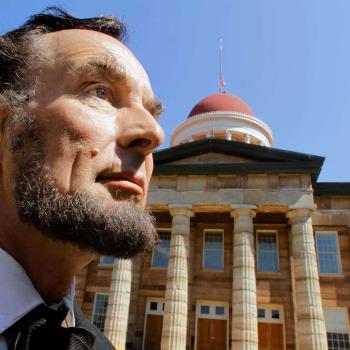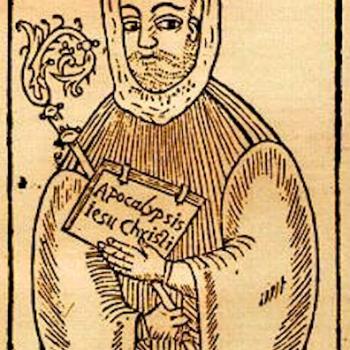Editor's Note: This article is part of the symposium, "What Is Progressive Christianity?" presented by the newly launched Patheos Progressive Christian Portal and in partnership with the Wild Goose Festival (June 23-26). Like us on Facebook to receive today's best commentary on Progressive Christianity.
Christianity is a long, wide river stretching back 2,000 years and beyond, fed by many cultural tributaries, containing countless currents and eddies, leaving behind oxbows and abandoned channels, and forming new channels and sand-bars all the time. Progressive Christianity is one of the channels flowing from the very beginnings of the faith, but this current began to take a distinctive form a few hundred years ago.
It's the result of the sandbank that formed in Western culture during the Enlightenment, when the emerging sciences began to conflict with religious dogma. In the mid-1800s, German scholars developed "higher criticism," a way of interpreting the sources of the texts of the Bible. It was a powerful new tool for understanding the human, historical roots of the scripture.
It became obvious that human beings had composed these writings in the cultural contexts of their times. The compelling findings of these scholars pulled back the curtain to reveal that the Bible was a human book about God, rather than a divine book for humans. As this scholarship spread to the shores of America, there were many who embraced and incorporated them into a theology that reconciled Christianity with the emerging "common sense" about natural and human history.
At the same time, there was a vigorous reaction from Christians who could not countenance a challenge to traditional belief in the supernatural origin and absolute authority of scripture. This split between what came to be known as "liberal" and later as "progressive" Christians, and the "fundamentalists," some later known as "evangelicals," has persisted since that era.
There is more to the split than just major differences about the origin and interpretation of the Bible. But to this day, by far the biggest distinction between progressives and evangelicals is their approach to the scriptures.
When The Center for Progressive Christianity (TCPC) was founded in 1994, the word "liberal" had been tainted very effectively by the conservative political movement. There was confusion about what it meant to be liberal. Did it have only a political connotation? What did it mean in the context of theology? In the interests of holding fissiparous church denominations together, many Christian leaders avoided giving comprehensible answers to questions about the origins of the Bible, the problems with supernatural theism, and the role of faith in society.
Rev. Jim Adams, the retired rector of an Episcopal church in Washington, D.C., founded TCPC in order to offer a straightforward description of a form of Christianity that had grown out of the liberal tradition. Its 8 Point Welcome Statement was a concise manifesto of the faith that takes the Bible seriously because it does not have to take it literally, affirms social responsibility on the same level as personal morality, explicitly embraces religious pluralism, and explicitly welcomes everybody, regardless of sexual orientation or belief or unbelief in traditional dogma.
TCPC, now ProgressiveChristianity.org, was and still is a very small, mostly volunteer-led organization. But it has had an influence far in excess of its institutional horsepower. Some 400 churches around the U.S. adopted the Welcome Statement and affiliated with TCPC. But the idea that there was a distinct "progressive" Christianity spread far beyond that circle. Now there was language to describe the faith of people who previously had been embarrassed to identify themselves as Christian, out of concern that they would be seen as fundamentalists. Now there was a clearly defined alternative, and a way to talk about it in public.
Out of this emerging milieu, many new expressions of progressive Christianity began to thrive. Regional "Foundations for Contemporary Theology," or similar groups, formed around the U.S. to give forums outside of the church for lay people and clergy to learn about progressive approaches to religious and social justice topics. The Jesus Seminar's scholarly search for the historical Jesus and the historical roots of early Christianity took on an increasingly important role in the progressive Christian movement. It began to produce much more material that could be used to translate post-supernaturalist theology and sound historical/critical biblical scholarship into preaching and worship.




